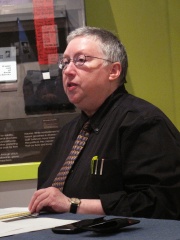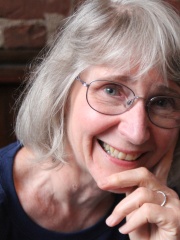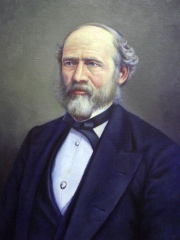
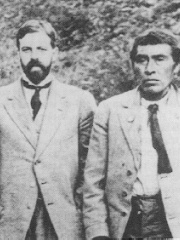

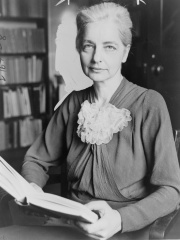
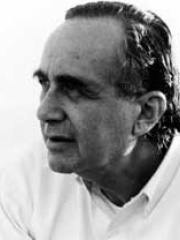
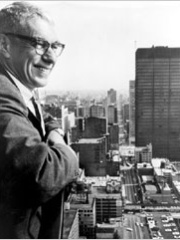
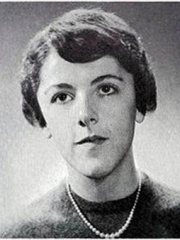
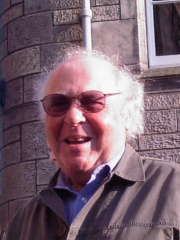
The Most Famous
ANTHROPOLOGISTS from United States
This page contains a list of the greatest American Anthropologists. The pantheon dataset contains 93 Anthropologists, 26 of which were born in United States. This makes United States the birth place of the most number of Anthropologists.
Top 10
The following people are considered by Pantheon to be the top 10 most legendary American Anthropologists of all time. This list of famous American Anthropologists is sorted by HPI (Historical Popularity Index), a metric that aggregates information on a biography's online popularity. Visit the rankings page to view the entire list of American Anthropologists.

1. Lewis H. Morgan (1818 - 1881)
With an HPI of 72.95, Lewis H. Morgan is the most famous American Anthropologist. His biography has been translated into 46 different languages on wikipedia.
Lewis Henry Morgan (November 21, 1818 – December 17, 1881) was an American anthropologist and social theorist, who worked as a railroad lawyer. He is best known for his work on kinship and social structure, his theories of social evolution, and his ethnography of the Iroquois. Interested in what holds societies together, he proposed the concept that the earliest human domestic institution was the matrilineal clan, not the patriarchal family. Also interested in what leads to social change, he was a contemporary of the European social theorists Karl Marx and Friedrich Engels, who were influenced by reading his work on social structure and material culture, the influence of technology on progress. Morgan is the only American social theorist to be cited by such diverse scholars as Marx, Charles Darwin, and Sigmund Freud. Elected as a member of the National Academy of Sciences, Morgan served as president of the American Association for the Advancement of Science in 1880. Morgan was a Republican member of the New York State Assembly (Monroe Co., 2nd D.) in 1861, and of the New York State Senate in 1868 and 1869.

2. A. L. Kroeber (1876 - 1960)
With an HPI of 72.81, A. L. Kroeber is the 2nd most famous American Anthropologist. His biography has been translated into 42 different languages.
Alfred Louis Kroeber ( KROH-bər; June 11, 1876 – October 5, 1960) was an American cultural anthropologist. He received his PhD under Franz Boas at Columbia University in 1901, the first doctorate in anthropology awarded by Columbia. He was also the first professor appointed to the Department of Anthropology at the University of California, Berkeley. He played an integral role in the early days of its Museum of Anthropology, where he served as director from 1909 through 1947. Kroeber provided detailed information about Ishi, the last surviving member of the Yahi people, whom he studied over a period of years. He was the father of the author Ursula K. Le Guin.

3. Margaret Mead (1901 - 1978)
With an HPI of 71.95, Margaret Mead is the 3rd most famous American Anthropologist. Her biography has been translated into 70 different languages.
Margaret Mead (December 16, 1901 – November 15, 1978) was an American cultural anthropologist, author and speaker, who appeared frequently in the mass media during the mid-twentieth century. Mead's first ethnographic work, Coming of Age in Samoa (1928), addressed adolescence and sexuality and catapulted her to national visibility. Her book Sex and Temperament in Three Primitive Societies (1935), explored gender roles and personality based on fieldwork in Papua New Guinea. Mead also conducted fieldwork with the Omaha people; in Manus, Papua New Guinea; and in Bali. She wrote Keep Your Powder Dry, an ethnographic examination of American life, in the hopes of supporting mobilization for World War II. She coordinated two comparative studies on modern cultures in the 1950s, while focusing her own work on Russia. Her later work included returns to Papua New Guinea, Bali, and Samoa for longitudinal studies. She was curator of ethnology at the American Museum of Natural History from 1946 to 1969. Mead served as president of the American Association for the Advancement of Science in 1975. According to anthropologist Paul Shankman, "Mead was anthropology’s most significant public voice during the twentieth century." She is regarded as a founding figure in public anthropology and visual anthropology. Her ethnography of the South Pacific and Melanesia has been subject to vigorous academic debate. From the 1920s to the 1960s, her fieldwork was widely discussed in the press and she wrote a monthly column in Redbook magazine co-authored with partner Rhoda Métraux. Her reports detailing the attitudes towards sex in South Pacific and Southeast Asian traditional cultures influenced the 1960s sexual revolution. Mead's association with cultural relativism and the sexual revolution led to sharp criticism from conservatives.

4. Ruth Benedict (1887 - 1948)
With an HPI of 71.22, Ruth Benedict is the 4th most famous American Anthropologist. Her biography has been translated into 51 different languages.
Ruth Fulton Benedict (June 5, 1887 – September 17, 1948) was an American anthropologist and folklorist. She was born in New York City, attended Vassar College, and graduated in 1909. After studying anthropology at the New School of Social Research under Elsie Clews Parsons, she entered graduate studies at Columbia University in 1921, where she studied under Franz Boas. She received her Ph.D. and joined the faculty in 1923. Margaret Mead, with whom she shared a romantic relationship, Marvin Opler, Ruth Landes, and Vera D. Rubin were among her students and colleagues. Benedict was president of the American Anthropological Association and also a prominent member of the American Folklore Society. She became the first woman to be recognized as a prominent leader of a learned profession. She can be viewed as a transitional figure in her field for redirecting both anthropology and folklore away from the limited confines of culture-trait diffusion studies and towards theories of performance as integral to the interpretation of culture. She studied the relationships between personality, art, language, and culture and insisted that no trait existed in isolation or self-sufficiency, a theory that she championed in her 1934 book Patterns of Culture.
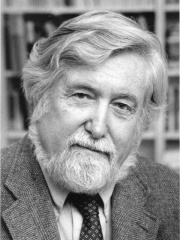
5. Clifford Geertz (1926 - 2006)
With an HPI of 69.27, Clifford Geertz is the 5th most famous American Anthropologist. His biography has been translated into 40 different languages.
Clifford James Geertz ( ; August 23, 1926 – October 30, 2006) was an American anthropologist who is remembered mostly for his strong support for and influence on the practice of symbolic anthropology and who was considered "for three decades ... the single most influential cultural anthropologist in the United States." He served until his death as professor emeritus at the Institute for Advanced Study, Princeton.

6. Marvin Harris (1927 - 2001)
With an HPI of 64.16, Marvin Harris is the 6th most famous American Anthropologist. His biography has been translated into 30 different languages.
Marvin Harris (August 18, 1927 – October 25, 2001) was an American anthropologist. He was born in Brooklyn, New York City. A prolific writer, he was highly influential in the development of cultural materialism. In his work, he combined Karl Marx's emphasis on the forces of production with Thomas Malthus's insights on the impact of demographic factors on other parts of the sociocultural system. Labeling demographic and production factors as infrastructure, Harris posited these factors as key in determining a society's social structure and culture. After the publication of The Rise of Anthropological Theory in 1968, Harris helped focus the interest of anthropologists in cultural-ecological relationships for the rest of his career. Many of his publications gained wide circulation among lay readers. Over the course of his professional life, Harris drew both a loyal following and a considerable amount of criticism. He became a regular fixture at the annual meetings of the American Anthropological Association, where he would subject scholars to intense questioning from the floor, podium, or bar. He is considered a generalist, who had an interest in the global processes that account for human origins and the evolution of human cultures. In his final book, Theories of Culture in Postmodern Times, Harris argued that the political consequences of postmodern theory were harmful, a critique similar to those later developed by philosopher Richard Wolin and others.

7. Edward T. Hall (1914 - 2009)
With an HPI of 64.09, Edward T. Hall is the 7th most famous American Anthropologist. Her biography has been translated into 21 different languages.
Edward Twitchell Hall Jr. (May 16, 1914 – July 20, 2009) was an American anthropologist and cross-cultural researcher. He is remembered for developing the concept of proxemics and exploring cultural and social cohesion, and describing how people behave and react in different types of culturally defined personal space. Hall was an influential colleague of Marshall McLuhan and Buckminster Fuller.

8. Ann Dunham (1942 - 1995)
With an HPI of 63.41, Ann Dunham is the 8th most famous American Anthropologist. Her biography has been translated into 27 different languages.
Stanley Ann Dunham (November 29, 1942 – November 7, 1995) was an American anthropologist who specialized in the economic anthropology and rural development of Indonesia. Born in Wichita, Kansas, she studied at the East–West Center and at the University of Hawaiʻi at Mānoa in Honolulu, where she earned a Bachelor of Arts (1967), a Master of Arts (1974), and a PhD (1992) in anthropology. Drawing on her interest in craftsmanship, weaving, and the role of women in cottage industries, Dunham conducted research on women's work on the island of Java and blacksmithing in Indonesia. To address the problem of poverty in rural villages, she designed microcredit programs while working as a consultant for the United States Agency for International Development. In Jakarta, she worked for the Ford Foundation, and consulted for the Asian Development Bank in Pakistan. Towards the latter part of her life, she worked with Bank Rakyat Indonesia, where she helped apply her research to the largest microfinance program in the world. As the mother of Barack Obama, the 44th president of the United States, her anthropological research faced renewed interest after his election, with new symposiums, endowments, fellowships, exhibitions, and publications dedicated to reexamining her life and upholding her legacy.

9. Marshall Sahlins (1930 - 2021)
With an HPI of 63.24, Marshall Sahlins is the 9th most famous American Anthropologist. His biography has been translated into 30 different languages.
Marshall David Sahlins ( SAH-linz; December 27, 1930 – April 5, 2021) was an American cultural anthropologist best known for his ethnographic work in the Pacific and for his contributions to anthropological theory. He was the Charles F. Grey Distinguished Service Professor Emeritus of Anthropology and of Social Sciences at the University of Chicago.
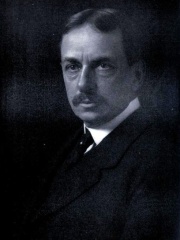
10. Henry Fairfield Osborn (1857 - 1935)
With an HPI of 62.13, Henry Fairfield Osborn is the 10th most famous American Anthropologist. His biography has been translated into 29 different languages.
Henry Fairfield Osborn, Sr. (August 8, 1857 – November 6, 1935) was an American paleontologist, geologist and eugenics advocate. He was professor of anatomy at Columbia University, president of the American Museum of Natural History for 25 years and a cofounder of the American Eugenics Society. Among his significant contributions include naming the dinosaurs Tyrannosaurus and Velociraptor, his widely used system of names for dental cusps and other features of mammalian teeth, as well as his research on fossil proboscideans (elephants and their extinct relatives). Osborn was one of the most well known scientists in the United States during his own lifetime, “second only to Albert Einstein", and was a prominent public advocate for the existence of evolution. Active during the eclipse of Darwinism, Osborn was a prominent opponent of natural selection as a mechanism of evolution, favouring the now discredited orthogenesis theory of which he was one of the most prominent advocates. In addition to being an advocate of eugenics, he was a Nordicist, viewing the white race as superior, and supported immigration controls. Osborn's political connections allowed him to gain significant funding for the American Museum of Natural History, using this to redesign and expand the museums exhibits, which he used to reflect his own views on "racialism, eugenics, and immigration".
People
Pantheon has 26 people classified as American anthropologists born between 1805 and 1961. Of these 26, 2 (7.69%) of them are still alive today. The most famous living American anthropologists include Gayle Rubin, and Eugenie Scott. The most famous deceased American anthropologists include Lewis H. Morgan, A. L. Kroeber, and Margaret Mead.
Living American Anthropologists
Go to all RankingsDeceased American Anthropologists
Go to all RankingsLewis H. Morgan
1818 - 1881
HPI: 72.95
A. L. Kroeber
1876 - 1960
HPI: 72.81
Margaret Mead
1901 - 1978
HPI: 71.95
Ruth Benedict
1887 - 1948
HPI: 71.22
Clifford Geertz
1926 - 2006
HPI: 69.27
Marvin Harris
1927 - 2001
HPI: 64.16
Edward T. Hall
1914 - 2009
HPI: 64.09
Ann Dunham
1942 - 1995
HPI: 63.41
Marshall Sahlins
1930 - 2021
HPI: 63.24
Henry Fairfield Osborn
1857 - 1935
HPI: 62.13
David Graeber
1961 - 2020
HPI: 60.81
Edwin H. Colbert
1905 - 2001
HPI: 60.48
Overlapping Lives
Which Anthropologists were alive at the same time? This visualization shows the lifespans of the 22 most globally memorable Anthropologists since 1700.

